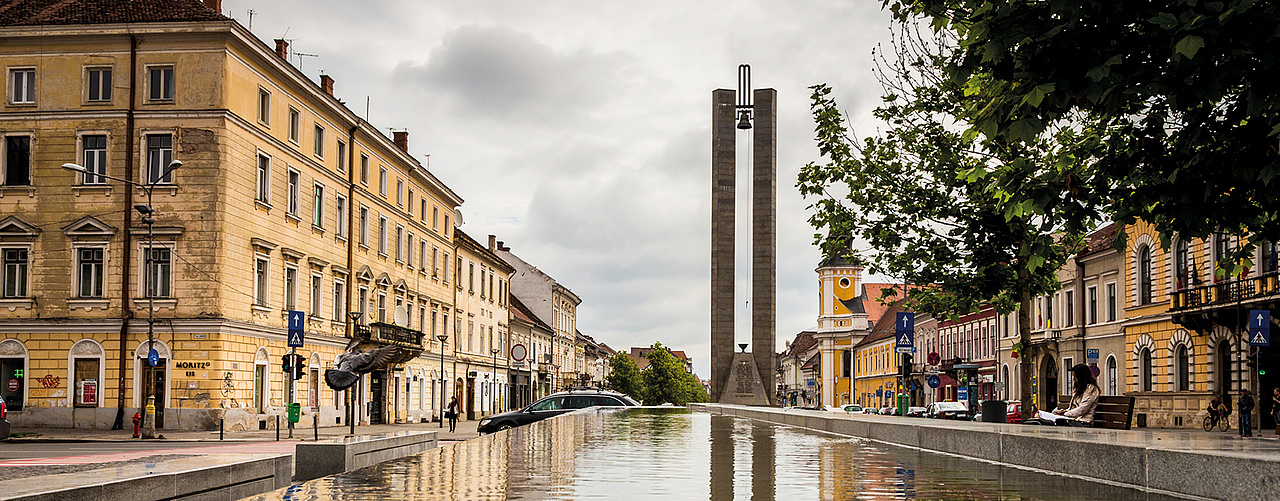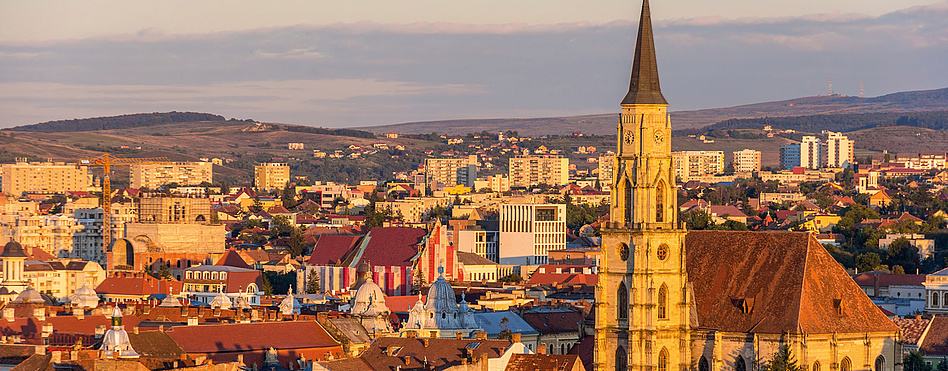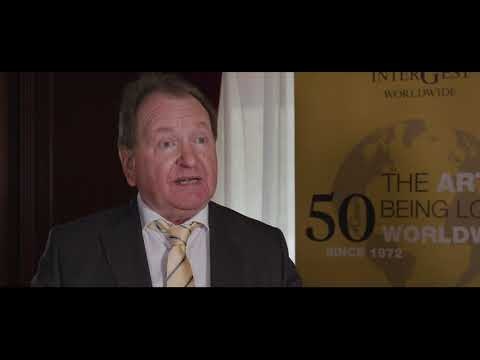
THE ART OF BEING LOCAL
IN ROMANIA
Company formation in Romania
Romania is located in south-east Europe, bordering the Black Sea. The country has been a member of the EU since 1 January 2007. It has a population of over 20 million people, an expanding economy and is an economic gateway to Eastern Europe and Asia. After joining the European Union, Romania underwent a series of government reforms in order to fulfil the conditions of EU membership. Today, the requirements of membership - including EU directives - are one of the driving forces behind Romania's reform programme.
Factors in favour of setting up a company in Romania include low taxes, good infrastructure, a skilled workforce and a high quality of life. These and other advantages make the country an ideal location for companies in all sectors.
The decisive basis for entering the Romanian market is to be well informed in advance and to carefully plan the necessary steps. With sound preparation and compliance with the legal requirements, setting up a company in Romania can be successful.
This is where InterGest Romania is the right contact for companies. InterGest Romania helps foreign companies to plan and realise their business activities in Romania.
Our co-partner Dr Georgiana Costin is responsible for all tax matters.
Since 1998, Uwe Kleer has been working as a business consultant for medium-sized companies since 1998, specialising in international company relocations, funding advice and project realisation, such as renewable energies. As a business economist, he is your competent point of contact and speaks German and English.
With his team, he supervises entrepreneurial activities throughout Europe.
Further information can be found in the country flyer.
After completing her German-language high school diploma at the George Coșbuc National College in Cluj-Napoca, Dr. Georgiana Costin pursued studies in Marketing and European Management at Babeș-Bolyai University, as well as advanced training in banking at the Romanian Banking Institute. In 2007, she earned a PhD in Economics with a focus on International Management. Her professional career began in the Romanian Senate, where she worked in a senator’s office, organizing press conferences, coordinating appointments, and writing speeches. She then took over the management of Acord Com S.A., where she was responsible for budget planning, contract negotiations, and team leadership. In the next step of her career, Dr. Costin founded the Contafiscal Group in 2004, now the market leader in Transylvania in the fields of accounting, payroll, and tax consulting. Dr. Costin is a certified public accountant and tax advisor.
WHY SHOULD
COMPANIES
INVEST IN
Romania?
Follow our series
(Video in German)
Advantages of setting up a company in Romania
One of the biggest advantages of setting up a company in Romania is the low level of taxation. With a corporate income tax rate (flat as profit tax) of only 16 % from a turnover of over EUR 100.000 or 3 % income tax (flat) till a turnover of 100.000 Euro, the country is one of the most attractive tax locations in Europe. Dividend tax in Romania is comparatively low by 16%, which is an advantage for both start-ups and established companies.
Romania is a member of the European Union, which facilitates access to the European single market. The country's infrastructure with its modern motorways, airports and ports offers the best conditions for international trade.
Thanks to its well-developed education system, Romania has qualified specialists in various fields, with both English and good German language skills.
The diversity of the landscape, the cultural sights and the hospitable people stand for a good quality of life and make the country an attractive location for entrepreneurs and their employees.
Do you need support in setting up and managing a company, partnership or branch office? Talk to InterGest Romania. The consultancy specialises in setting up companies in Romania.
Selection of the company form
The choice of company form is an important step when setting up a company in Romania. There are different types of companies, ranging from sole proprietorships to corporations:
- Sole proprietorship (Firma Individuală): A single owner manages the company and bears full responsibility for all business matters.
- Limited liability company (Societate cu Răspundere Limitată, S.R.L.): This form is similar to a GmbH and offers the advantage that the shareholders' liability is limited to their contributions.
- Public limited company (Societate pe Acțiuni, S.A.): A corporation whose capital is divided into shares and whose liability is limited to the company's assets.
- General partnership (Societate în Comandită Simplă, S.C.S.): A company in which there is at least one partner with limited liability (limited partner) and at least one partner with unlimited liability (general partner).
- Limited partnership (Societate în Comandită pe Acțiuni, S.C.A.): Similar to a general partnership, but with the option of dividing the capital into shares.
- Co-operative (Cooperativă): An organisation based on cooperative principles and jointly managed by its members to promote their economic interests.
It is important that entrepreneurs carefully weigh up the pros and cons of each business form in order to choose the most suitable option for their company in Romania. Tax and legal aspects should also be considered before deciding on a company form. It is advisable to seek advice in order to find the best solution for the planned company.
InterGest Romania knows the administrative basics of setting up a business in Romania and helps companies to establish themselves in Romania - from commercial project management, recruitment and administration to import, export and administrative work as well as support in setting up sales.
Legal framework for setting up a company in Romania
When setting up a company in Romania, there are legal framework conditions to consider before taking the step into self-employment.
Documents must be submitted, such as the articles of association, proof of identity of the founders, proof of payment of the share capital and, if applicable, confirmation from the managing directors. These documents are submitted to the commercial register to officially register the company.
Tax obligations include registration for VAT, income tax and social security contributions.
The legal framework for setting up a company in Romania is varied but straightforward. It is advisable to obtain detailed information in advance and to seek professional support in order to avoid potential problems or pitfalls. InterGest Romania provides clients with professional legal advice in Romania.
Risks of setting up a company in Romania
When setting up a company in Romania, various risks can arise that should be carefully considered::
- Bureaucratic hurdles: Romania occasionally has a time-consuming bureaucracy. This can lead to delays in the approval of licences and permits.
- Skilled labour: In some industries and regions, there may be a shortage of qualified workers, which can make it difficult to recruit talent.
- Competition: Competition in many industries in Romania can be intense, especially in urban centres and in areas that are attractive to foreign investment. A thorough understanding of the market and competitors is therefore essential.
- Cultural differences and language barriers: Operating as a foreign company in Romania can involve cultural differences and language barriers, which can make communication and business understanding difficult. It is important to take these aspects into account and act accordingly if necessary. InterGest Romania provides German and English speaking staff.
- Tax and regulatory requirements: The tax and regulatory landscape in Romania can be complex. Companies need to keep abreast of tax changes and regulatory requirements to ensure compliance and minimise financial risks.
- Infrastructure and logistics: Especially in rural areas, the infrastructure and logistics in Romania may not be as well developed as in other European countries. This can lead to challenges in the supply chain and distribution.
The risks are offset by many opportunities for companies in Romania, particularly in areas such as information technology, manufacturing and tourism. Thorough market research, risk analysis and planning are crucial to maximise the chances of success when setting up a business in Romania.
Expert advice on setting up a company in Romania
Romania is a market with excellent potential for companies, a strategic location and an increasingly solid business climate. The economy is one of the fastest growing members of the EU.
InterGest Romania knows the Romanian market inside out. Managing Director Uwe Kleer has been working as a management consultant since 1998, specialising in international company relocations, subsidy consulting and project realisation such as renewable energies. Together with his team, the business economist supports entrepreneurial activities throughout Europe.
InterGest Romania accompanies export-orientated companies and supports them with services in setting up, designing and managing their own foreign branches - from bookkeeping and accounting, business accounting, cash and credit management, payroll accounting and tax consultancy to invoicing, dunning and debt collection.







